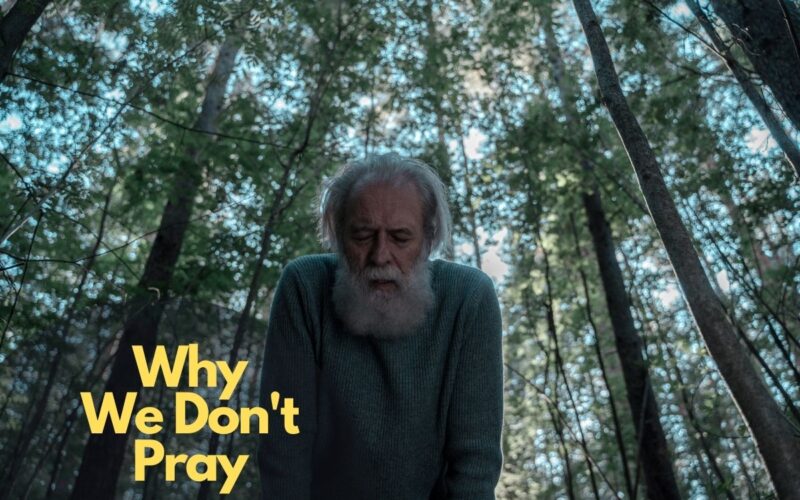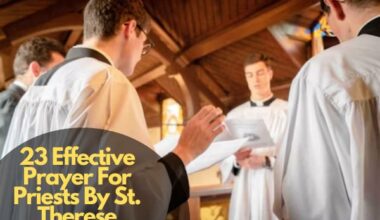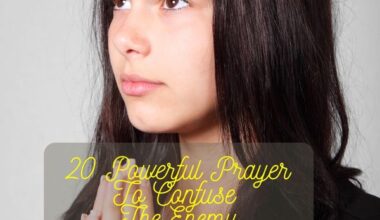In the texture of modern existence, the rhythmic cadence of prayer, once a ubiquitous thread, finds itself unraveling amidst the complexities of contemporary life. The act of prayer, a timeless conduit for spiritual connection, appears to be waning in significance for many. As we navigate the ceaseless currents of the 21st century, the question echoes: “Why we don’t pray”
This article embarks on a profound exploration, peeling back the layers to reveal the intricacies behind this cultural shift. From the incessant buzz of technology to personal struggles and societal transformations, we journey through the labyrinth of reasons that contribute to the diminishing presence of prayer in our daily lives.
Why We Don’t Pray
The reasons why individuals may choose not to pray can vary widely and are often rooted in personal beliefs, philosophical perspectives, or individual experiences. Here are some common reasons why some people may choose not to engage in prayer:
1. Atheism or Agnosticism: Some people do not believe in the existence of deities or a higher power, making the concept of prayer irrelevant to them.
2. Secular Beliefs: Individuals who adhere to secular ideologies may prefer to focus on rational and empirical approaches to problem-solving rather than turning to prayer.
3. Disillusionment with Religion: Some individuals may have had negative experiences with organized religion, leading them to reject or distance themselves from practices such as prayer.
4. Personal Beliefs and Values: People may have personal philosophies that prioritize different forms of self-reflection, meditation, or other means of seeking solace and guidance rather than traditional prayer.
5. Scientific Worldview: Those who embrace a scientific worldview may rely on scientific methods and evidence-based reasoning, considering prayer as outside the scope of empirical validation.
6. Cultural or Family background: Some individuals may come from cultural or familial backgrounds that do not emphasize prayer or may even discourage it.
7. Philosophical Skepticism: Individuals with a skeptical mindset may question the efficacy of prayer and prefer to rely on tangible actions and concrete solutions.
8. Personal Choice: Ultimately, some people may choose not to pray simply because it does not resonate with them. They might find alternative ways to cope with challenges or seek guidance.
It’s important to note that the decision not to pray is a personal choice, and individuals may have a combination of these reasons or unique perspectives influencing their stance. Respect for diverse beliefs and choices is crucial in fostering understanding and tolerance among people with different worldviews.
Common Myths and Realities About Praying
1. Prayer Guarantees Material Success
Myth: If you pray devoutly, you will always achieve financial success or material wealth.
Reality: While prayer can provide emotional support, it does not guarantee specific material outcomes. Success often involves a combination of factors, including personal effort and external circumstances.
2. Prayer Can Change the Will of a Higher Power
Myth: Through prayer, one can manipulate or change the will of a higher power.
Reality: Different religious beliefs hold varied perspectives on divine will, but many emphasize acceptance and alignment with a higher plan rather than attempting to change it through prayer.
3. Prayer is a Magical Fix for Health Issues
Myth: Prayer alone can cure serious illnesses or replace medical treatment.
Reality: While prayer may offer comfort and emotional support, it is not a substitute for professional medical care. Many religious traditions encourage seeking medical help in conjunction with prayer.
4. More Prayer Equals More Favor
Myth: The quantity or frequency of prayers determines one’s favor with a higher power.
Reality: Quality and sincerity of prayer are often emphasized over sheer volume. The depth of one’s connection and intention matters more than the quantity of prayers offered.
5. Prayer Protects from Life’s Challenges
Myth: Regular prayer shields individuals from facing difficulties or challenges in life.
Reality: Prayer is often seen as a source of inner strength and guidance rather than a shield against external challenges. It can help individuals cope with adversity but may not prevent it.
6. Prayer Requires a Formal Setting
Myth: Prayer must be conducted in a religious institution or formal setting to be effective.
Reality: Prayer can be practiced anywhere, from the solitude of one’s home to natural surroundings. The setting is less important than the sincerity and intention behind the prayer.
7. Only Desperate People Pray
Myth: People pray only when they are in desperate situations or facing crises.
Reality: Prayer is a personal and diverse practice. People engage in prayer for various reasons, including gratitude, guidance, and spiritual connection, not solely during difficult times.
8. Prayer Always Follows a Script
Myth: Prayers must follow a predefined script or formula to be valid.
Reality: While some religious traditions have formalized prayers, many individuals engage in spontaneous, personal prayers expressing their thoughts and feelings.
Understanding the diversity of beliefs and practices surrounding prayer can help dispel these myths and promote a more nuanced understanding of the role prayer plays in different individuals’ lives.






